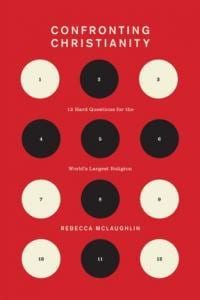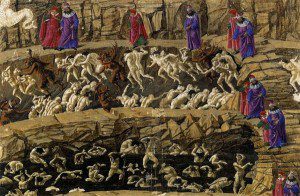 How can a loving God create humans in his image only to consign
How can a loving God create humans in his image only to consign millions make that billions of them to hell?
The current population of earth is around 7.7 billion. It is estimated that something around 108 billion humans have ever been born (live births only). The exact number isn’t really important. Only a fraction, even of those alive today, have ever heard the gospel of Jesus Christ. A smaller fraction of those alive in 1700 AD had an opportunity to hear.
Rebecca McLaughlin (Confronting Christianity: 12 Hard Questions for the World’s Largest Religion) considers this the most significant question confronting Christianity today. “This one is about the end of the story, and it is the most difficult thing Christians are called to believe.” (p. 210) It is also the final question addressed in her book. She provides no answer … not even a real hint at an answer.
There are some important observations. Judgment is an important part of the story. Humans are morally accountable – such accountability is an essential part of being human. “Unless we are willing to rob humans entirely of their moral agency, we must sometimes say that evil is evil, and that it comes from the heart. And if we cannot say this, we must also never say that love is love.” (p. 211) All of us can be tempted to evil in some ways and in some circumstances. Peer pressure, the ends justify the means, greed, arrogance. Guilt requires judgment.
Jesus took on this burden – Paul writes ” For what I received I passed on to you as of first importance: that Christ died for our sins according to the Scriptures.” (1 Cor. 15:3) and Jesus tells Nicodemus “For God did not send his Son into the world to condemn the world, but to save the world through him.” (John 3:17)
God through Jesus will judge the world. Jesus himself is the judge (Acts 10:42), but he is more than judge. He is the bread of life, the living water, the shepherd, the sacrificed son. Incarnation, crucifixion, and resurrection are all part of the story. Rebecca points out the importance of incarnation. “Jesus is not the passive victim of God’s wrath, he is God himself.” (p. 217) God himself bore the consequences of sin. No divine child abuse, no sacrificed “innocent.” Yes Jesus was innocent, but here the divine nature is important. God through Jesus redeemed his people.
God is merciful, a theme that runs through Scripture. Read Jonah with this in mind …
 But who are his people? Are these the ones who heard and at one time said the right words? Is it it only those who have been baptized? Is it only those lucky enough to be “chosen,” born at the right time, in the right place, into circumstances making them receptive?
But who are his people? Are these the ones who heard and at one time said the right words? Is it it only those who have been baptized? Is it only those lucky enough to be “chosen,” born at the right time, in the right place, into circumstances making them receptive?
Ultimate judgement isn’t the hard question. The opportunity for salvation is the hard question, and coming in a close second, the nature of hell.
Rebecca doesn’t answer the question of who … but she does dig into the idea of heaven and hell a bit.
Heaven, in biblical terms, is not primarily a place. It is a shorthand for the full blessing of relationship with God. It is the prodigal son come home. It is the bride being embraced by her husband with tears of joy. It is the new heavens and the new earth, where God’s people will be upgraded … Heaven is home: an embodied experience of deep relationship with God and his people on a recreated earth.
Hell is the opposite. It is the door shut in the face of the wastrel son, the divorce certificate delivered at the moment of remorse, the criminal receiving his just deserts. (p. 218)
Hell is, Rebecca argues, loss of Jesus: starving, darkness, wandering alone and lost, eternal death, and paying the price … because Jesus is bread, light, shepherd, life, and lamb who bears the sins of the world.
But this still leaves us with who and how. Yes, how is through the blood and faithfulness of Christ. But how does God save or condemn individuals in any fashion that could be regarded as “fair?”
At this stage of my life, I am content to leave this to God, resting in the knowledge that he is just and merciful.
We are called to follow and to make disciples.
“Therefore go and make disciples of all nations, baptizing them in the name of the Father and of the Son and of the Holy Spirit, and teaching them to obey everything I have commanded you. And surely I am with you always, to the very end of the age.” (Mt 28:19)
What do you think?
Is this the hardest question for Christians?
If you wish to contact me directly you may do so at rjs4mail[at]att.net
If interested you can subscribe to a full text feed of my posts at Musings on Science and Theology.
The link to the book above is a paid link. Go with this one if you prefer: Confronting Christianity.











